

THE IMPORTANCE OF SOUND ENGINEERING IN LIVE SOUND REINFORCEMENT SITUATIONS
(Joe Chelliah)
I write to highlight a serious problem in audio engineering, also known as live sound reinforcement, in Malaysia. Audio engineering is a part of audio science dealing with the recording and reproduction of sound through mechanical and electronic means. More specifically, it refers to the management of sound in situations where there are live musical performances, speeches or playbacks of sound recordings from whatever source. It is more commonly referred to as the PA system or merely as the sound system by lay folks. In the old days PA was understood as public address and today it is considered professional audio.
With the rapid advances made in audio technology and more recently with digital technology, the management of sound has become quite a complex affair. The sound pressure levels generated by the new audio systems can also be very powerful and even deafening. In the old days horn speakers were used in large open air situations – the types still used for the azan at mosques. Horn speakers were also suitable at funfairs of yesteryears in which the sound had to be heard from far away to attract the kampong folk. Somehow, this penchant for loud sound seems to linger on even today particularly with the younger generation. From kampong weddings to live concerts the audience is “treated” to deafening and ear-unfriendly sound with a belief that loud is good.
The management of amplified sound requires sound engineers and audio technicians. It’s no more about just turning the volume, bass or treble knobs anymore. Main house equalizers, parametric equalizers, noise gates, sound processors and a complex array of similar audio peripherals make it indeed a much more multifaceted affair. In Malaysia, we have quite a few sound engineers whose qualification is generally derived from long exposure and experience with actual live sound situations. On the other hand, anyone can study the theory and practice of audio engineering at higher institutions of learning and proclaim oneself to be a sound engineer. Yet, such a person can fail miserably in real live situations in spite of all his/her technical knowledge, experience and training. This is more applicable to live music concert situations and has occurred with alarming regularity in Malaysia – both over the airwaves and live concert situations for quite some time now with no redress or cure in sight.
In the early days of RTM, there was an official post called “sound balancer” now defunct. Nine out of ten such sound balancers were musicians with good musical hearing. Names like Samad Harun, Eddie Francis, Din Osman come to mind. Their bosses themselves were good musicians like Ahmad Merican (now Tan Sri), Zainal Abu and Dol Ramli. These sound balancers even became producers later on with their gathered experience. One needs good musical ears to balance the sound in any musical situation. A sound engineer configures the sound system to its peak capacity and makes sure there are no technical glitches like buzzes and feedbacks (that high pitched, horrible shrieking sound) that can damage ear drums. That is his/her main role.
Sound balancing is also quite synonymous with the mixing of musical sounds. Different kinds of music and genres require different mixes. In Indian or Ghazal music, for example, the tabla has to be very prominent. In swing music, the kick drum receives lesser focus than say the ride cymbals or snare and so on. In pop yeh-yeh music the lead vocals and the lead guitar receive equal emphasis in volume. In most advanced countries, unlike here in Malaysia, the sound engineer is also a trained musician who has studied such aspects of music formally too.
In a recording studio situation the producer (usually a very good musician) maintains this balance while the sound engineer/technician oversees other technical aspects only. This arrangement can be duplicated at live shows. In many live shows that I have attended in recent times the sound engineer is almost always a non-musician but one who knows about the technicalities of sound amplification at best. I was present at the Java Jazz Festival in Jakarta earlier this year to watch our RTM jazz band perform some very nice and difficult pieces but sadly the sound mix hardly matched the otherwise excellent performance by the jazz band. Excellent horn arrangements and great solos by Razak Rahman and Dato’ Mokhzani largely went unheard or noticed because of the poor mixing done by the sound “engineers” there. Many Malaysian TV stations have grand finals in stadiums and open air situations repeating similar problems perpetually in spite of generous budget allocations by sponsors.
I believe that having a good and proven musician ( there are many around) behind the board can eliminate this problem. For example, someone like Fauzi Marzuki or Roslan Aziz can easily be put in-charge of sound balancing with a reasonably attractive fee. Such a person can then work hand in hand with the sound engineer(s) to elicit the best of sounds both from the system as well as the performers. Let us hope that such things are given due prominence from the powers that be.
With the rapid advances made in audio technology and more recently with digital technology, the management of sound has become quite a complex affair. The sound pressure levels generated by the new audio systems can also be very powerful and even deafening. In the old days horn speakers were used in large open air situations – the types still used for the azan at mosques. Horn speakers were also suitable at funfairs of yesteryears in which the sound had to be heard from far away to attract the kampong folk. Somehow, this penchant for loud sound seems to linger on even today particularly with the younger generation. From kampong weddings to live concerts the audience is “treated” to deafening and ear-unfriendly sound with a belief that loud is good.
The management of amplified sound requires sound engineers and audio technicians. It’s no more about just turning the volume, bass or treble knobs anymore. Main house equalizers, parametric equalizers, noise gates, sound processors and a complex array of similar audio peripherals make it indeed a much more multifaceted affair. In Malaysia, we have quite a few sound engineers whose qualification is generally derived from long exposure and experience with actual live sound situations. On the other hand, anyone can study the theory and practice of audio engineering at higher institutions of learning and proclaim oneself to be a sound engineer. Yet, such a person can fail miserably in real live situations in spite of all his/her technical knowledge, experience and training. This is more applicable to live music concert situations and has occurred with alarming regularity in Malaysia – both over the airwaves and live concert situations for quite some time now with no redress or cure in sight.
In the early days of RTM, there was an official post called “sound balancer” now defunct. Nine out of ten such sound balancers were musicians with good musical hearing. Names like Samad Harun, Eddie Francis, Din Osman come to mind. Their bosses themselves were good musicians like Ahmad Merican (now Tan Sri), Zainal Abu and Dol Ramli. These sound balancers even became producers later on with their gathered experience. One needs good musical ears to balance the sound in any musical situation. A sound engineer configures the sound system to its peak capacity and makes sure there are no technical glitches like buzzes and feedbacks (that high pitched, horrible shrieking sound) that can damage ear drums. That is his/her main role.
Sound balancing is also quite synonymous with the mixing of musical sounds. Different kinds of music and genres require different mixes. In Indian or Ghazal music, for example, the tabla has to be very prominent. In swing music, the kick drum receives lesser focus than say the ride cymbals or snare and so on. In pop yeh-yeh music the lead vocals and the lead guitar receive equal emphasis in volume. In most advanced countries, unlike here in Malaysia, the sound engineer is also a trained musician who has studied such aspects of music formally too.
In a recording studio situation the producer (usually a very good musician) maintains this balance while the sound engineer/technician oversees other technical aspects only. This arrangement can be duplicated at live shows. In many live shows that I have attended in recent times the sound engineer is almost always a non-musician but one who knows about the technicalities of sound amplification at best. I was present at the Java Jazz Festival in Jakarta earlier this year to watch our RTM jazz band perform some very nice and difficult pieces but sadly the sound mix hardly matched the otherwise excellent performance by the jazz band. Excellent horn arrangements and great solos by Razak Rahman and Dato’ Mokhzani largely went unheard or noticed because of the poor mixing done by the sound “engineers” there. Many Malaysian TV stations have grand finals in stadiums and open air situations repeating similar problems perpetually in spite of generous budget allocations by sponsors.
I believe that having a good and proven musician ( there are many around) behind the board can eliminate this problem. For example, someone like Fauzi Marzuki or Roslan Aziz can easily be put in-charge of sound balancing with a reasonably attractive fee. Such a person can then work hand in hand with the sound engineer(s) to elicit the best of sounds both from the system as well as the performers. Let us hope that such things are given due prominence from the powers that be.



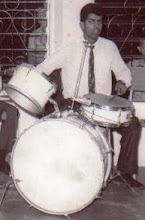

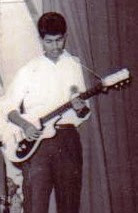


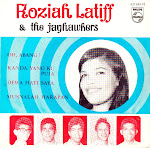



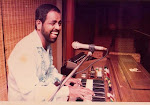

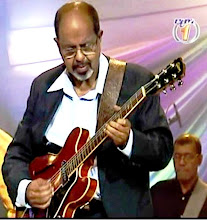


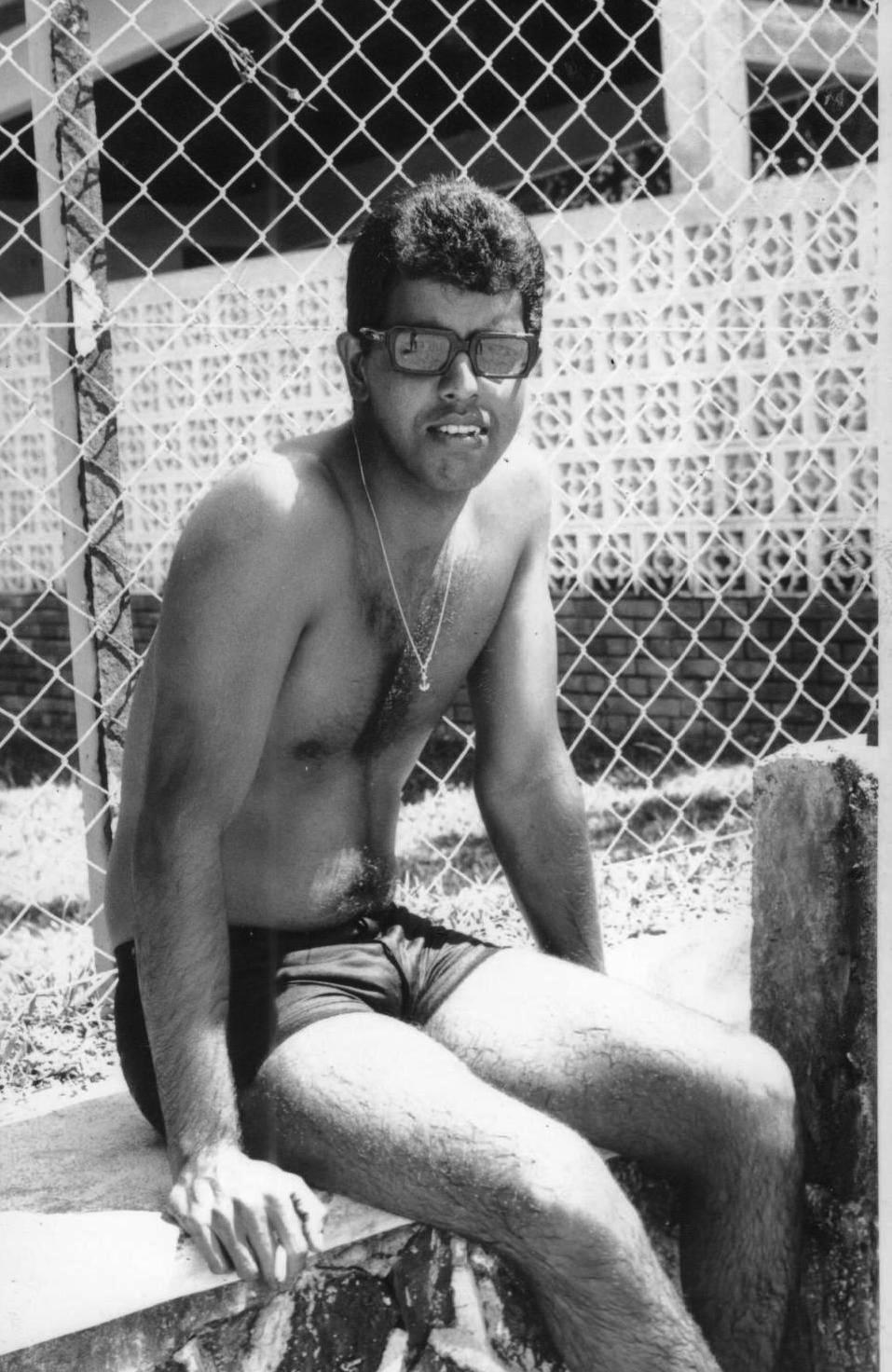
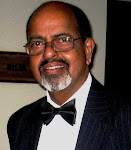


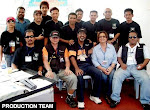
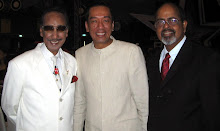

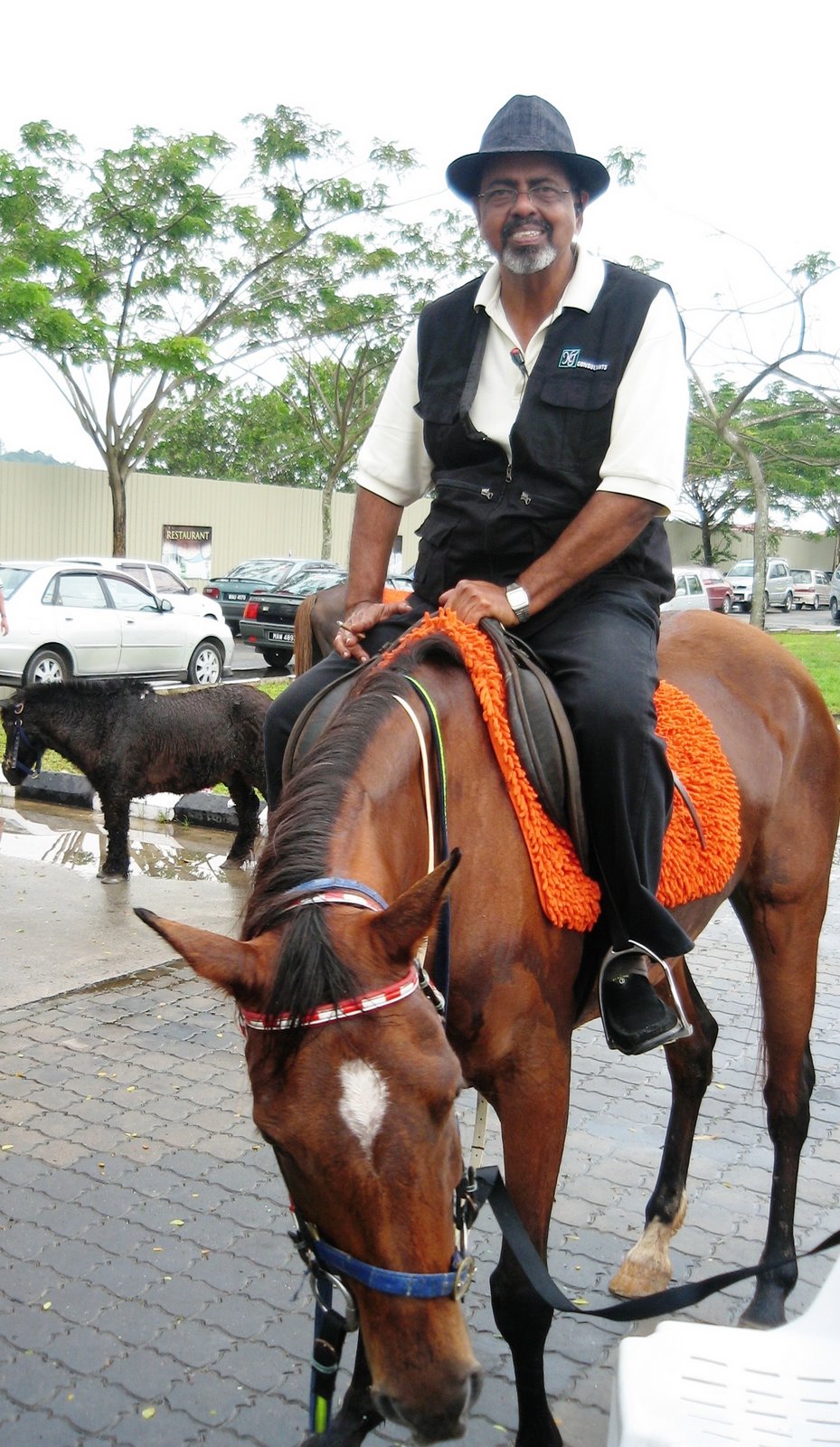







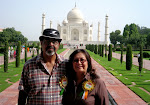



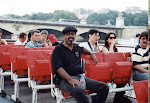

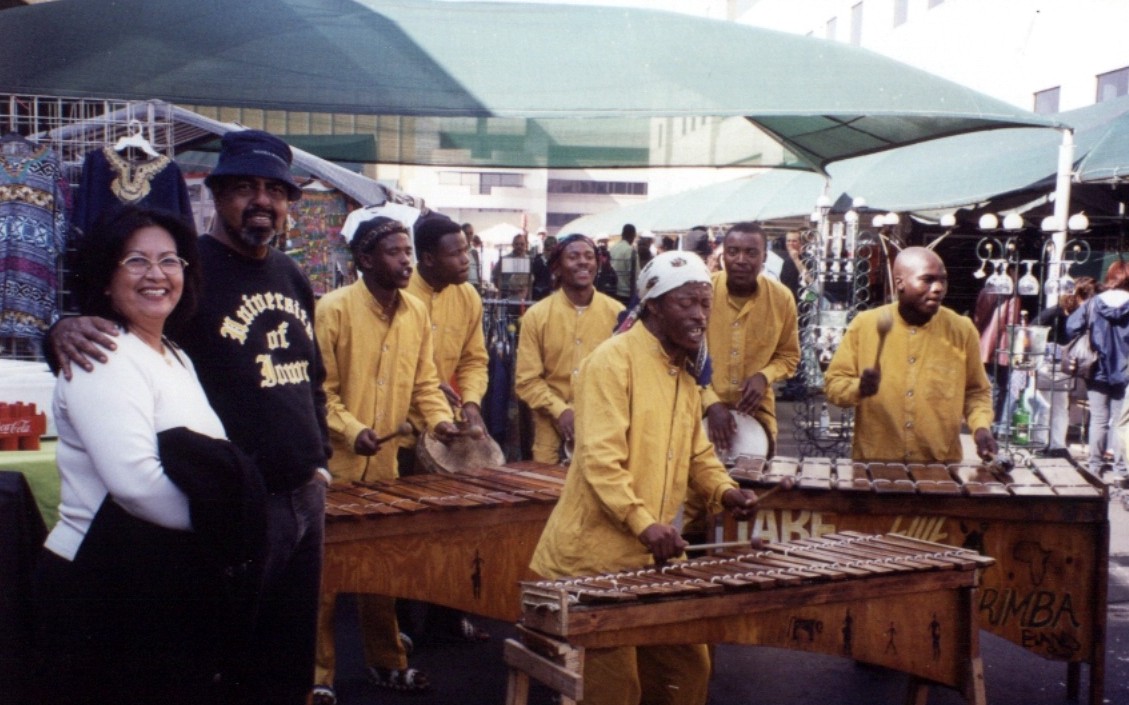

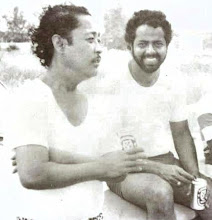
1 comment:
Great post -- very informative!
Thanks for your comments on my blog Mr Chelliah -- it was really an honor to meet you. I will certainly keep in touch and hope to visit again soon!
take care!!
Carl
Post a Comment